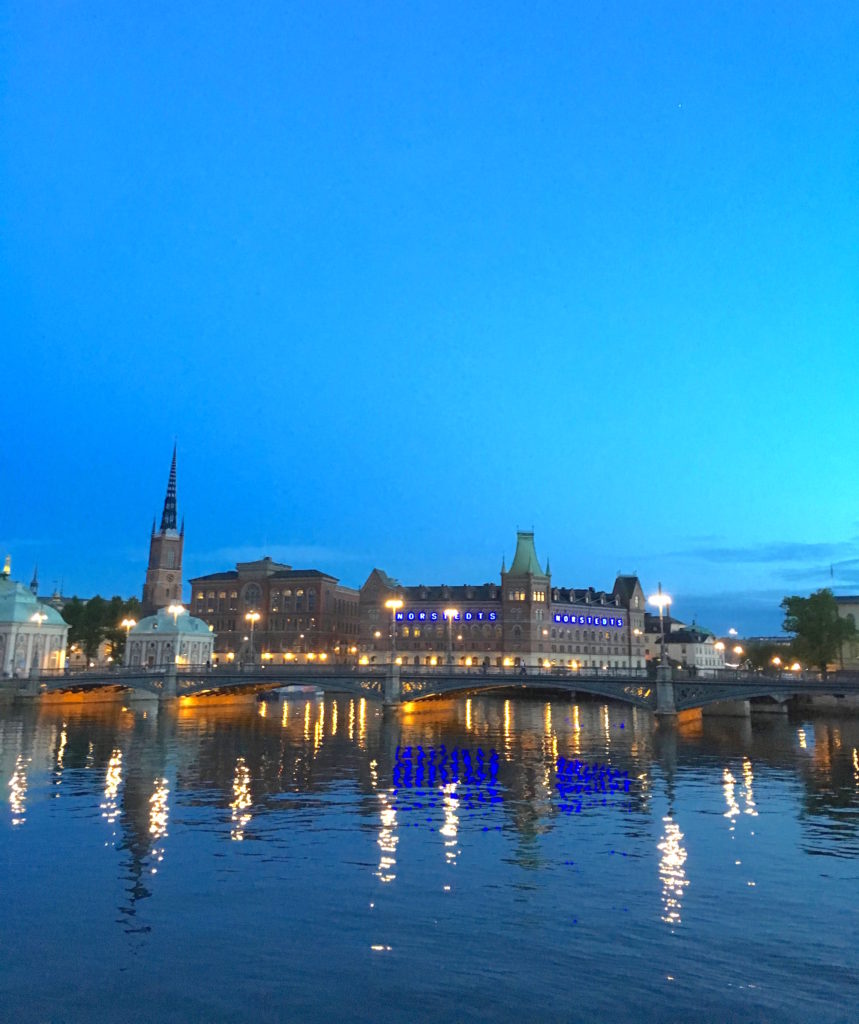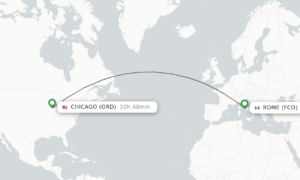(Editor’s note: Donald J. Trump is the new president of the United States. Which terrifies a significant percent of the U.S. population, liberal and conservative. And for every Trump hater, there’s a Clinton hater. Which ever side you’re on, don’t forget … it’s a big world. You can see the first installment of ‘Fleeing Trump and Hillary” here.)
Whether it’s luck or fate, we’re starting Dispatches Europe at the very time an increasing number of Americans are considering their expat options for the next four years or so. In fact, there’s a poll out indicating one in four Americans would consider leaving if Trump is elected. Others claim they will leave if Hillary Clinton is elected. In terms of trend lines, more Americans are renouncing their citizenships.
(T)he number of published expatriates for the first three months of 2016 was a record 1,158. In 2015, there were approximately 4,300 expatriations. Comparing present to past suggests that Americans renouncing citizenship have risen 560 percent from their Bush administration high. There are now 18 times as many renouncers as in 2008.
To that end, we’ve put together lists of the most welcoming countries in Europe, the countries that – in our experience – offer the best alternatives to living in the States in practical and cultural terms. We stress “practical,” because as we noted in the first installment of this series, there are limited paths to gaining long-term residency status in Europe.
That said, we’ve already told you how you can buy residency in countries such as Portugal, Spain and Malta by simply buying property, or investing in a business. If you’re even remotely wealthy, this could be your best play, because capital requirements can be really quite low – as little as 250,000 euros in Greece. (It’s no coincidence that countries with the best deals are also the fiscally unstable countries with Europe’s oldest populations and lots of pensions to pay.)
Otherwise, most Americans end up in Europe one of three ways – their multi-national corporation sends them, Uncle Sam sends them as soldiers, spooks or diplomats, or they go as a student, meet a European and get married. A sub-category of American expats includes the ultra-rich, celebs and movie stars looking for a place to relax away from the spotlight. If you have a few million bucks, every country throws out the welcome mat.
Even Sweden.
We were going to group the Scandinavian countries – Sweden, Norway and Denmark – into one post because Sen. Bernie Sanders has made praising Scandinavian-style Christian Socialism – especially in Denmark – a cornerstone of his campaign. In one of the first debates, Sanders said, “I think we should look to countries like Denmark, like Sweden and Norway and learn from what they have accomplished for their working people.”
In Sweden, as in the rest of Scandinavia, taxes on the wealthy are high, but the money comes back to all citizens in the form of free education, social services and an incomparable infrastructure.
Inspired, we went to Stockholm in the interest of good digital journalism. And yeah, Sweden deserves its own dedicated post.
In just a few days, we met a lot of expats, particularly American expats. They’re unanimous that Stockholm has one – and only one – rival when it comes to quality-of-life … Copenhagen. Overall, Sweden is an incredibly high-functioning society, with the best of everything … design, architecture, infrastructure, joie de vivre and just basic societal organization and cohesion. The Swedes are so competent and focused, they look down on the Dutch as a bunch of disorganized amateurs.
The problem is, everyone wants to live in Stockholm.
Let’s say a million dollars fell into your hands and you decided to move here. Guess what … you’d have a heck of a time finding a place to live.
What it’s like to live there:
Sweden shares a population profile with neighbors Norway and Finland – it’s a large, wealthy country that’s basically empty. About 85 percent of the Swedish population of 9.5 million live in three cities – Stockholm, Malmo and Gothenburg. To get an idea of how different life is here than, say, the Netherlands, the Netherlands has 17 million people crammed into a piece of real estate that would fit into the region around Stockholm … the city proper and the Stockholm archipelago of about 30,000 islands. In terms of landmass, Sweden is the third-largest country in Europe behind France and Spain.
Checking out Stockholm, Dispatches contributor Ivana Avramovic and I used every form of public transportation – buses, trains, ferries and metros. Everything is new, if over-crowded. Which is true for the whole city because this is where the opportunities are. The Swedes are building high-rise apartment towers as fast as they can, or they are converting former industrial sites to mutli-family residential. But Stockholm still has a huge housing shortage, a housing shortage that’s actually threatening Sweden’s leadership in the tech world.
Earlier this month, Spotify founders Daniel Ek and Martin Lorentzson wrote an open letter to the Swedish government, pointing out how issues such as lack of housing and taxes make it increasingly difficult to attract world-class talent. “Maybe,” they said, “we need to relocate to The Valley.” Which is kind of humorous since no one ever said what a good deal houses are in Silicon Valley.
(The politics are too complicated to get into here, but more than anything, Spotify executives seem to be using their leverage to get tax breaks on incentives such as stock options for their mega-company similar to incentives Sweden gives smaller companies.)

APARTMENTS SUCH AS THESE ON THE WATER NEAR THE CENTER OF STOCKHOLM BRING A PREMIUM FAR BEYOND MANY BUDGETS
Still, it’s true Sweden has labyrinthine rules on renting apartments and a decades-long waiting list for government housing. American expats told us it can take months to find an affordable apartment within commuting distance of Stockholm, which is odd because we saw cranes and apartment construction sites everywhere. But only 10,000 new homes are projected to be built annually over the next 15 years despite the fact Stockholm’s government is cutting red tape in order to boost residential developments.
Ease of access:
If you’re gee-whiz tech talent, Sweden will find a way to get you a long-term resident status. About 50,000 people — both Swedes and expats— move to Stockholm to work for tech companies, financial firms and multi-national corporations each year, according to promotional materials from Stockholm’s city government. The Economist reports that one-third of startups in Stockholm are launched by first- or second-generation migrants. Each year an estimated 2,500 Indian software programmers apply for visas to work in Stockholm.
We haven’t gone through the visa process. But our research and interviews with expats indicate that if you have the tech skills, you’re likely to get an initial extended-stay visa.
Courtesy of the Swedish government, here’s a step-by-step guide to immigrating.
As of March, you can use the new Tid till beslut (Time to a decision) function, to find out on your own how long your application may take the Migration Agency to process. While processing times have not become longer or shorter, information is more readily available, according to the immigration website.
To be granted long-term resident status, you must:
- have lived continuously in Sweden for five years
- have had a residence permit for the last five years
- have a permanent residence permit
- and your family are able to support themselves.
Our patented Dispatches Quick List of positives and negatives:
• A big positive is that as in the Netherlands, everyone in Sweden (or at least in Stockholm) speaks English fluently.
• With the country at or above 60-degrees north latitude, Sweden has like 13 months of winter. (For the record, it was perfect while we were in town.) Locals tell us Stockholm gets cold, but not that cold. (One said Stockholm is much warmer than Toronto, for example.) Swedes are outside all the time, winter or summer.
• On the “Will I fit in?” level, our take based in a few days hanging out is, yes. People in Stockholm at least seem incredibly relaxed, conversational and social. Our first night out listening to music, a huge guy puts his arm around me while offering me his stool at the bar. That was just one of many acts of random kindness. We also heard from expats that making friends here outside work is easier than in other European countries such as the Netherlands.
• The one big negative is Sweden isn’t part of the euro and maintains its own currency, the Kroner. Everything from a cup of coffee to a car is crazy expensive. And of course, housing is off the charts. Only cities such as London and Zurich have higher costs of living. But we found that Stockholm has a far higher quality of life overall, better certainly than London.
• “Taxes.” There, we’ve said it. If you’re a top wage earner, it’s going to be painful, because say goodbye to at least 55 percent of your gross income. Here’s are personal income tax rates via Wikipedia.
Sweden has a progressive income tax, the rates for 2014 are as follows:
- 0% from 0 kr to 18,800 kr (~0 – 2,690 USD)
- Circa 31% (ca. 7% county and 24% municipality tax): from 18,800 kr to 433,900 kr (~2,690 – 62,140 USD)
- 31% + 20%: from 433,900 kr to 615,700 kr (~62,140 – 88,180 USD)
- 31% + 25%: above 615,700 kr (88,180 USD and up
• We’ve saved the best for last … everything you’ve heard about the Swedes is true. This is home to the most ridiculously attractive people on Earth. Everyone is tall, fit and good looking. If you have any sort of self-image issues, Sweden is probably not the place for you, because it gets a little oppressive for those of us who aren’t swim suit models.
Our runaway-worthy rating on a scale of 10: 5 out of 10.
This is solely a function of practicality … if you can’t find a place to hang your hat, how practical would it be to live here? If money is no object, Sweden is a Perfect 10.
Co-CEO of Dispatches Europe. A former military reporter, I'm a serial expat who has lived in France, Turkey, Germany and the Netherlands.
















